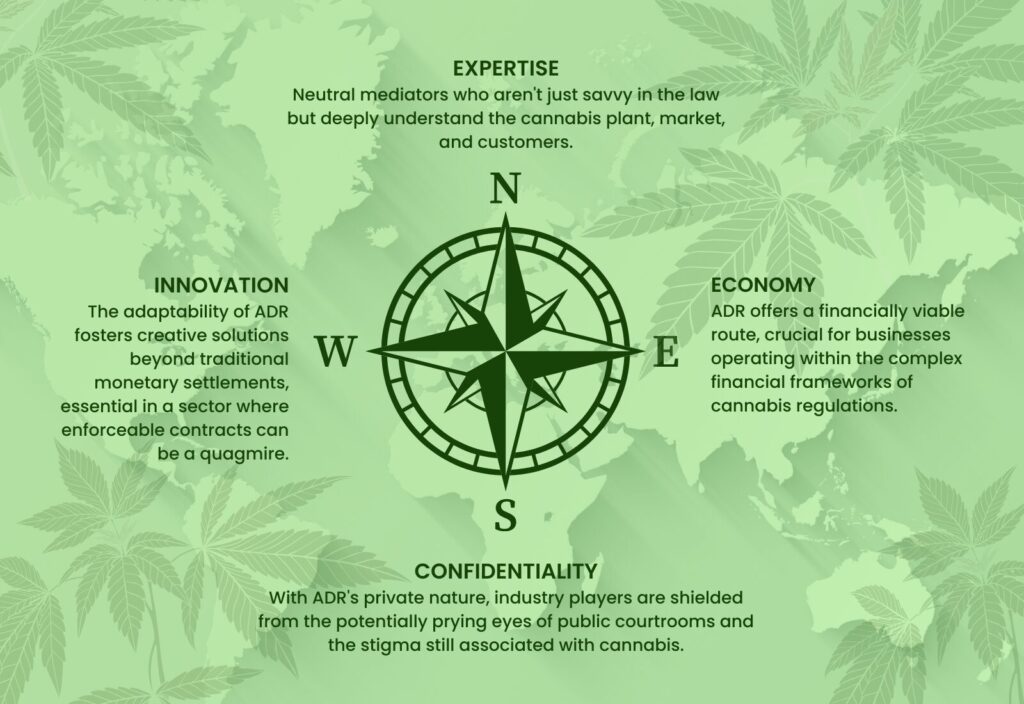
As a mediator specializing in cannabis-related conflicts, I’ve witnessed firsthand the increasing need for Alternative Dispute Resolution (ADR) in this rapidly evolving industry. With three-quarters of Americans now living in states where recreational or medical marijuana use is legal, the landscape of potential disputes has expanded dramatically. Currently, 24 states and the District of Columbia have legalized recreational marijuana, while 14 states permit its use for medicinal purposes. Yet cannabis with more than .3 percent THC by dry weight remains illegal under federal law. This has created a complex legal environment, ripe for controversy.
Participants in the cannabis industry deal with a wide array of legal disputes. These include conflicts over intellectual property, mergers and acquisitions, and the ownership and management of cannabis farms, processing and distribution companies, and dispensaries. We’re seeing an increase in employee claims, personal injury cases, water rights disagreements, and land use and environmental regulation violations. Violations of the ADA and federal safety laws, local code enforcement targeting landlords, and conflicts between neighboring farmers over odors and pollen drift are all part of the growing list of legal issues in this sector.
The cannabis industry faces unique challenges when it comes to resolving disputes through traditional
Read full article on HarrisBricken


